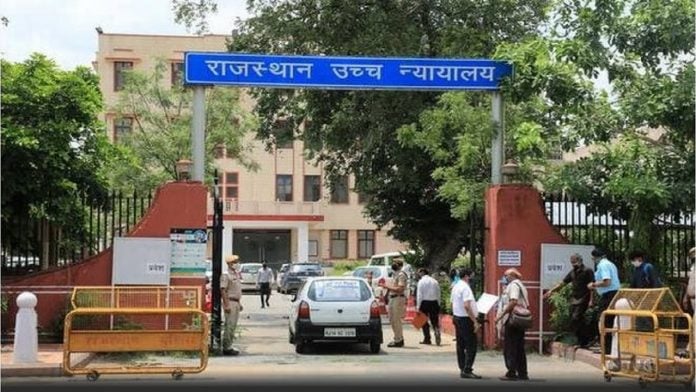The Rajasthan High Court has recently directed the Collector of Jalore District to ensure that any dumping of slurry along the on road should be stopped as soon as it is brought to his notice.
The Division Bench of Chief Justice Akil Kureshi and Justice Rameshwar Vyas disposed of a PIL filed by NGO Green and Clean Aves Land Sansthan raising the issues concerning illegal dumping of granite slurry by granite polishing and processing units.
The case of the petitioner is that a large number of granite processing units are situated in Jalore District.
Set up by the Rajasthan State Industrial Development and Investment Corporation (RIICO), Jalore Industrial Area is a hub of the granite processing industries in western Rajasthan. In the raw form, granite rocks are brought to these processing units, where they are converted into granite slabs, which after polishing, are used for commercial and domestic purposes. Such granite slabs are also exported by several units. During the process of converting granite blocks into polished granite slabs, granite slurry comes into existence as wastage and has to be discarded. Discarding this granite slurry is the centre of the controversy in the PIL.
According to the petitioner, the granite processing units are allotted a specified dumping site by the Collector and the RIICO, only where such slurry can be deposited. Breaching all these requirements and safety norms of pollution, several processing units have dumped slurry on the sides of the road and also on private agricultural land without permission from the agriculturists. This had in the past led to representations and agitations, states the petitioner.
The case of the RIICO put forth by its advocate is that the RIICO has already specified the dumping sites and it is for the members of the association of granite processors, who have to manage their affairs. RIICO ensures compliance of norms within its area. If there is any breach of the norms by the members of the association or even non-member units, it is for the State administration to control such activities.
The counsel for the association of granite processing units submitted that the association is managing the dumping sites and periodically giving contracts for removing the slurry so that fresh slurry can be dumped there. The contracts are given to contractors from whom the association charges royalty. Since this slurry is a raw material for the purpose of production of tiles, this slurry is sold to tiles manufacturing units at Morbi and elsewhere.
The counsel further submitted that if the individual industrial units are involved in illegal activities of dumping of slurry on the side of the road or agricultural land without permission, the association cannot be held responsible for the same. With respect to a complaint previously raised that the association is preventing contractors from lifting slurry from private lands without payment of royalty, the counsel clarified that such an allegation is not correct. He submitted that the royalty is levied from the contractor only for removing the slurry from the dumping sites which are managed by the association.
Moti Singh, the counsel for the petitioner, submitted that apart from the illegal nature of the activity of dumping the slurry on the side of the road and in private properties, the same also leads to serious degradation of agricultural soil as well as causes environmental damage.
Having heard the counsel for the parties and perused the documents on record, the Court recorded the statement of the counsel for RIICO that the slurry dumped by the units on the side of the road is substantially removed. He stated that removal work will be completed within a couple of weeks from now.
The Bench also recorded the stand of the association that the association would not permit any of the members to dump the slurry at any place other than the specified dumping sites allocated for such purpose. The Court also recorded the statement of the counsel for the association that the association will not prevent any of the contractors from removing the slurry from private lands. Under the circumstances, it would be open for the concerned industrial units or the landholders to have the same removed without the association demanding royalty for the purpose.
The High Court does recognize that this illegal activity of dumping the slurry on the side of the road or on private lands, would not only be wholly illegal but would also be opposed to environmental norms set up by the Pollution Control Board. “It would be the duty of the State administration to ensure that such illegal activities do not take place in future,” observed the Court.
For such purpose, the Court directed that the State administration and particularly, the Collector shall ensure that any such activity of dumping slurry on the side of the road would be stopped as soon as brought to his notice.
“If any of the farmers raise an objection to such slurry being dumped on his private land before the Pollution Control Board or the State administration, such a complaint would be attended promptly and suitable steps shall be taken to prevent such activity if the complaint is found to be genuine. Even the activity of dumping slurry on agricultural land with the consent of the agriculturist concerned, would amount to non-agricultural use of agricultural land and should not be permitted,” the order reads.


